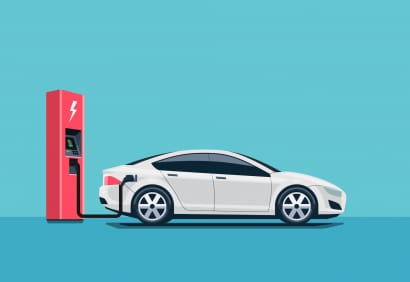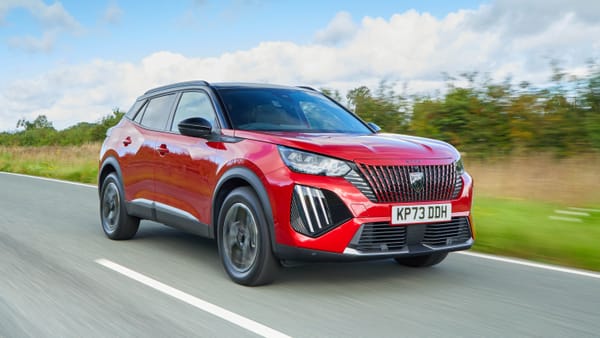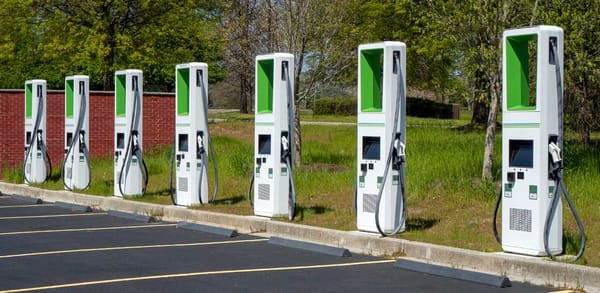EU Car Sector Urges Reduction in Regulations and Enhanced Industrial Strategy.
In the wake of shifting global dynamics and the challenges posed by the transition to electric and autonomous vehicles, the European Union's automotive sector is rallying for a significant overhaul in regulatory frameworks and an enhanced industrial strategy to maintain competitiveness.


In the wake of shifting global dynamics and the challenges posed by the transition to electric and autonomous vehicles, the European Union's automotive sector is rallying for a significant overhaul in regulatory frameworks and an enhanced industrial strategy to maintain competitiveness.
Amidst concerns over declining market share and technological disruption, industry leaders are advocating for a streamlined approach that fosters innovation while ensuring sustainability and global relevance.
The call for fewer regulations echoes across the EU's automotive landscape, resonating from manufacturers to suppliers and beyond.
At the forefront of this plea is the need for regulatory agility to keep pace with rapid technological advancements.
Complex bureaucratic hurdles often impede innovation, stifling the industry's ability to adapt swiftly to emerging trends and consumer demands.
Furthermore, excessive regulations not only hinder innovation but also pose significant economic burdens.
Compliance costs associated with navigating a labyrinth of regulatory requirements divert resources away from research and development efforts, hampering the industry's capacity to invest in cutting-edge technologies and sustainable practices.
In addition to reducing regulatory burdens, the EU car sector emphasizes the critical importance of a coherent and forward-thinking industrial strategy.
A robust industrial strategy should encompass measures to bolster competitiveness, foster innovation, and address systemic challenges such as supply chain disruptions and skills shortages.
Central to this strategy is the promotion of a level playing field that ensures fair competition both within the EU and on the global stage.
This necessitates proactive measures to address trade imbalances, protect intellectual property rights, and safeguard against unfair practices, such as market-distorting subsidies from non-EU competitors.
Moreover, a comprehensive industrial strategy should prioritize strategic investments in research and development, infrastructure, and workforce training to underpin the transition towards cleaner, smarter, and more sustainable mobility solutions.
By fostering collaboration between industry stakeholders, academia, and policymakers, the EU can cultivate a fertile innovation ecosystem that propels the automotive sector toward a prosperous and resilient future.
Furthermore, the EU car sector advocates for greater alignment between regulatory frameworks and industry objectives to ensure coherence and effectiveness.
Harmonizing standards and regulations across member states can streamline market access and facilitate economies of scale, driving down costs and enhancing competitiveness.
Additionally, there is a growing consensus within the industry that the EU should adopt a proactive stance in shaping global automotive standards and regulations.
By actively engaging with international partners and standard-setting bodies, the EU can exert influence and advocate for norms that reflect European values, priorities, and technological leadership.
The European Union has implemented several regulations aimed at promoting the adoption of electric cars as part of its broader strategy to combat climate change, reduce air pollution, and achieve carbon neutrality.
These regulations cover various aspects of electric vehicles (EVs), including emissions standards, vehicle performance requirements, charging infrastructure, and incentives to encourage consumer uptake.
Here's an overview of some key EU regulations on electric cars:
- CO2 Emission Standards: The EU has set stringent CO2 emission targets for car manufacturers to encourage the production and sale of low-emission vehicles, including electric cars. The European Commission has established fleet-wide CO2 emission targets that automakers must meet to avoid fines. These targets are gradually becoming more ambitious over time, incentivizing automakers to produce and sell more electric and hybrid vehicles to reduce their average fleet emissions.
- Emission Testing Procedures: The EU has introduced standardized testing procedures, such as the Worldwide Harmonized Light Vehicles Test Procedure (WLTP), to measure the emissions and energy consumption of vehicles more accurately. These procedures provide consumers with reliable information about the environmental performance of electric cars compared to traditional internal combustion engine vehicles.
- Alternative Fuel Infrastructure Directive: The EU has implemented the Alternative Fuel Infrastructure Directive, which aims to ensure the development of a comprehensive network of charging infrastructure for electric vehicles across member states. This directive requires member states to install a minimum number of publicly accessible charging points for electric cars in urban areas, along highways, and at major transport hubs.
- Battery Regulations: The EU has introduced regulations governing the design, production, and disposal of batteries used in electric vehicles to promote safety, environmental sustainability, and resource efficiency. These regulations cover aspects such as battery performance, durability, recyclability, and the use of hazardous substances.
- Consumer Incentives: To stimulate consumer demand for electric cars, many EU countries offer financial incentives, tax breaks, and subsidies to individuals and businesses purchasing electric vehicles. These incentives can include grants for the purchase of electric cars, reduced registration fees, exemption from road tolls, and preferential parking and access to low-emission zones.
- Fleet Emission Targets: In addition to CO2 emission targets for individual manufacturers, the EU has introduced fleet-wide emission targets for new passenger cars and light commercial vehicles sold in the EU. These targets require automakers to reduce the average emissions of their entire vehicle fleets, including both electric and conventional vehicles, to meet specified targets.
Overall, these EU regulations on electric cars are designed to accelerate the transition to cleaner and more sustainable transportation systems by incentivizing the production, sale, and use of electric vehicles while also addressing key challenges such as charging infrastructure deployment, battery technology development, and consumer acceptance.
By providing a clear regulatory framework and support mechanisms, the EU aims to drive innovation and investment in the electric vehicle sector, ultimately contributing to the decarbonization of the transport sector and the achievement of climate goals.
In conclusion, the EU car sector's call for fewer regulations and a better industrial strategy underscores the urgent need for a paradigm shift in policymaking to navigate the complexities of the automotive landscape effectively.
By fostering a regulatory environment that prioritizes innovation, sustainability, and competitiveness, the EU can empower its automotive industry to thrive in an era of unprecedented change and disruption.
Embracing this vision requires bold leadership, proactive collaboration, and a steadfast commitment to driving the future of mobility forward.




